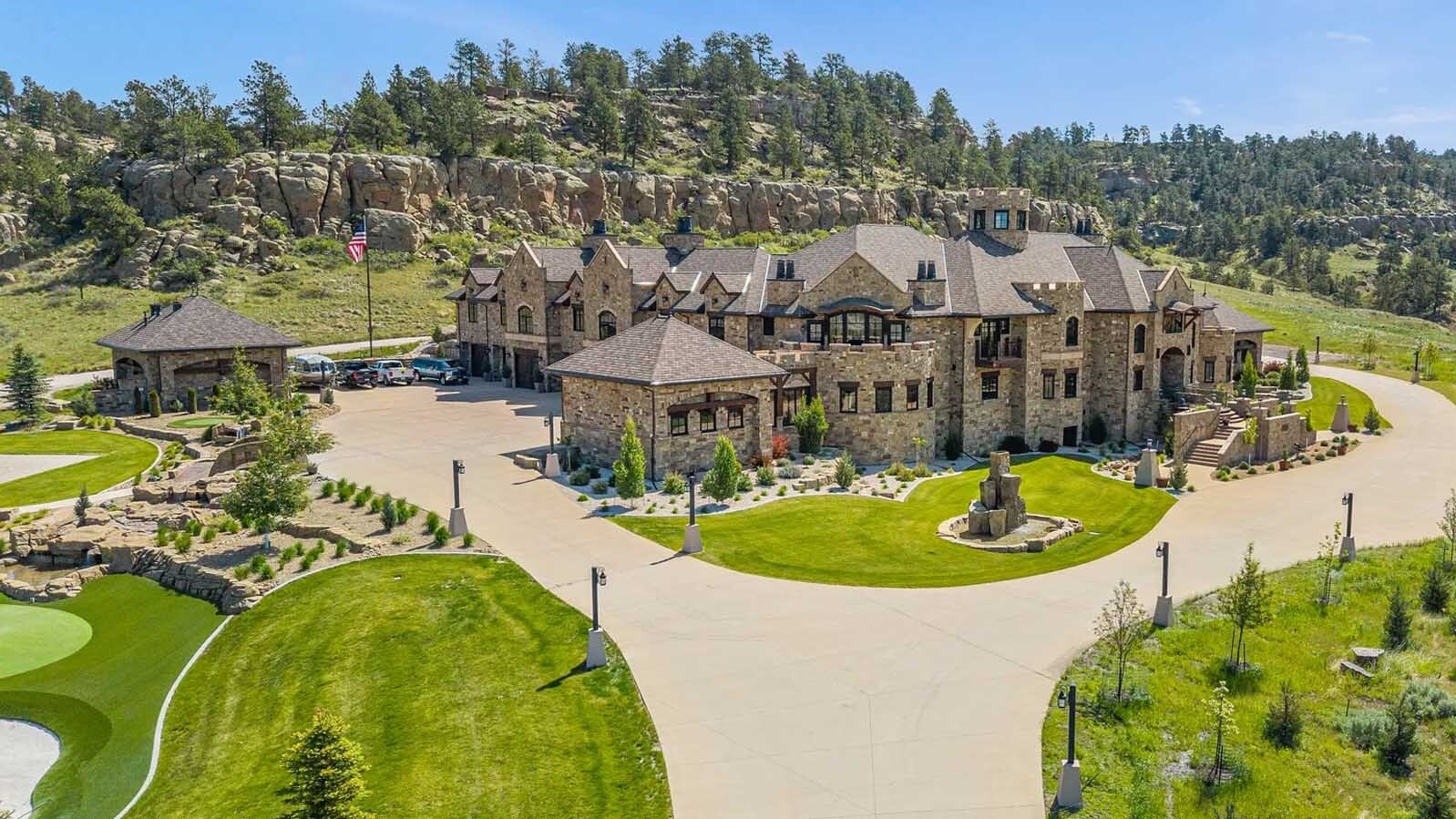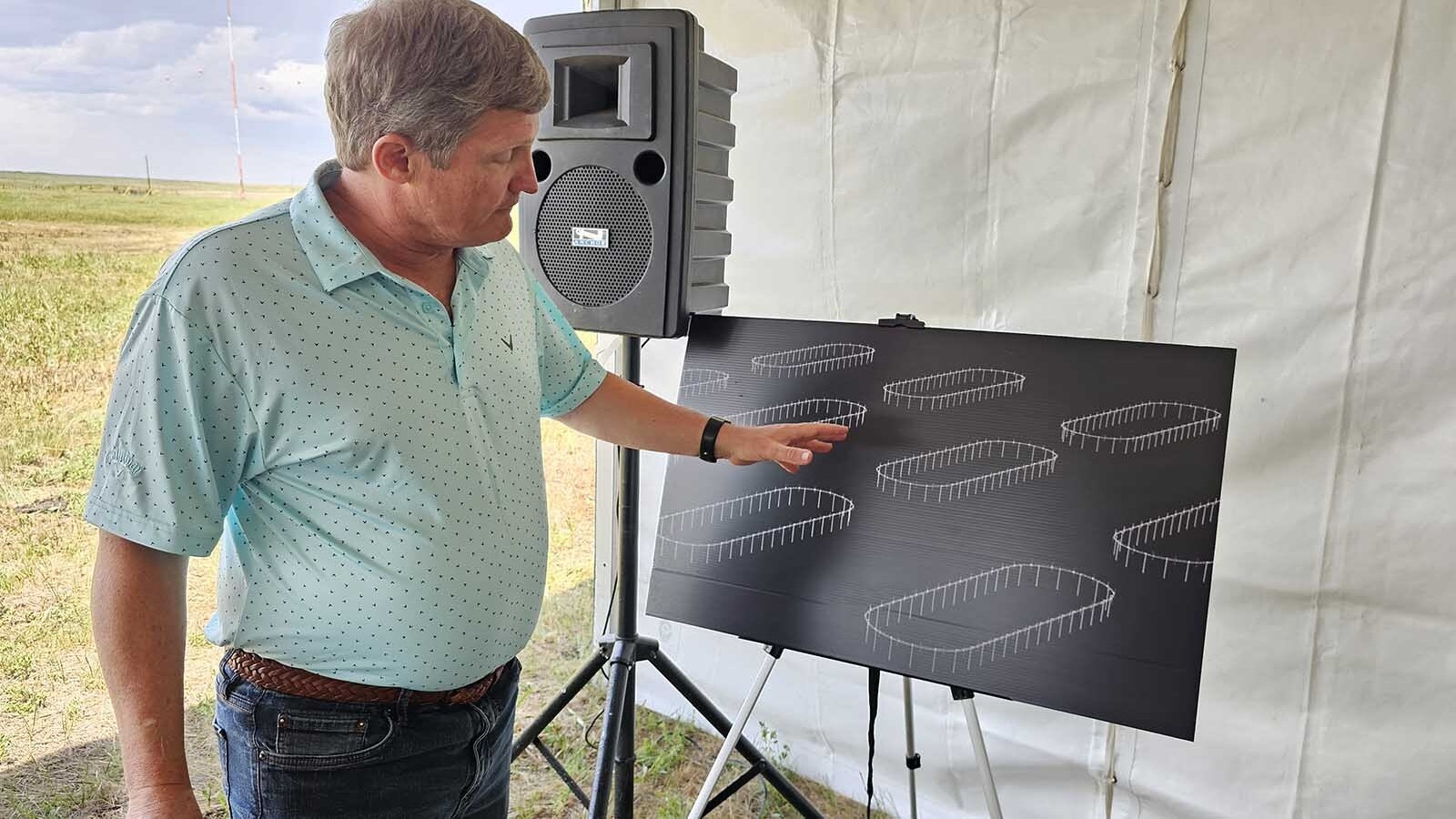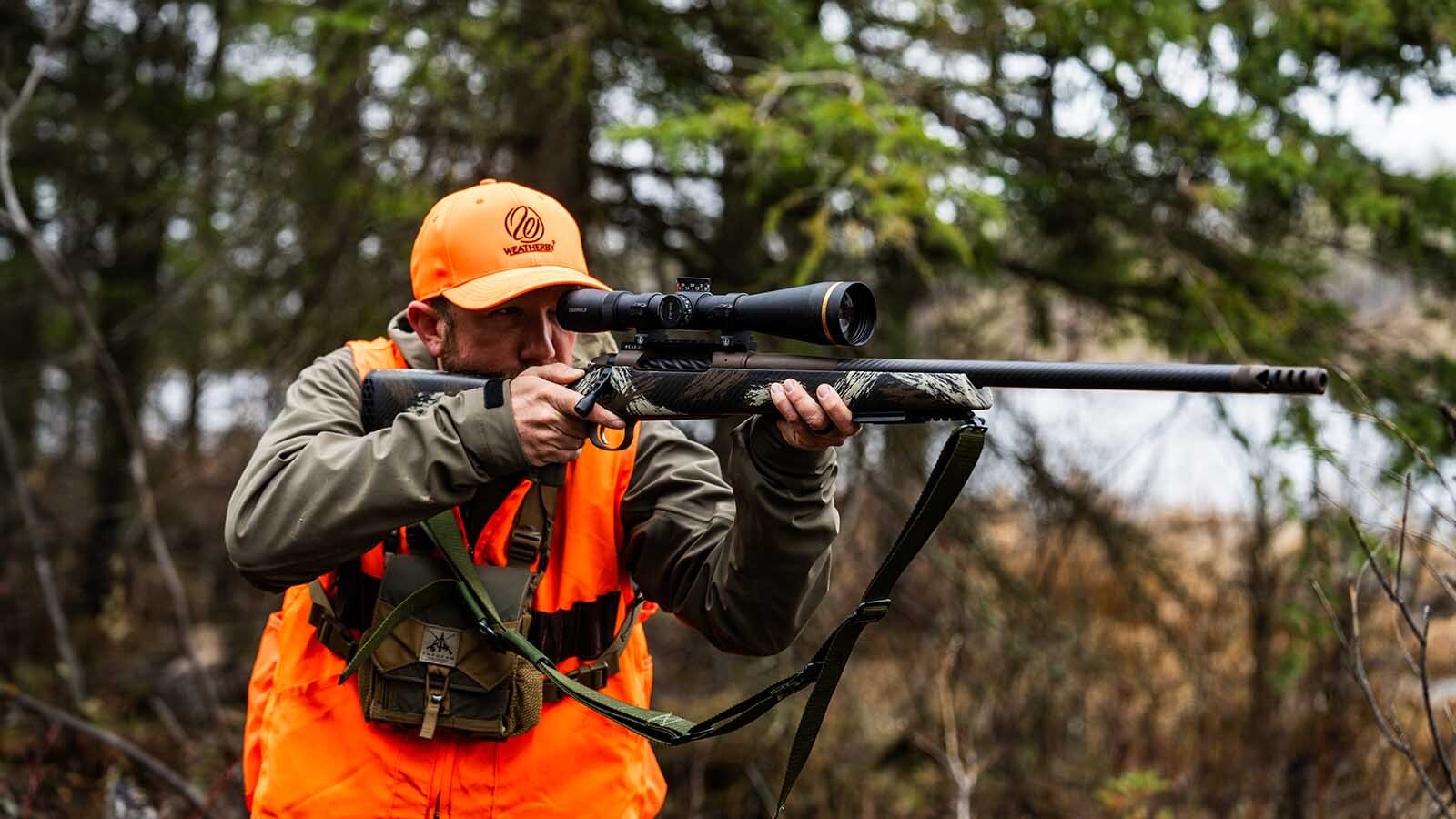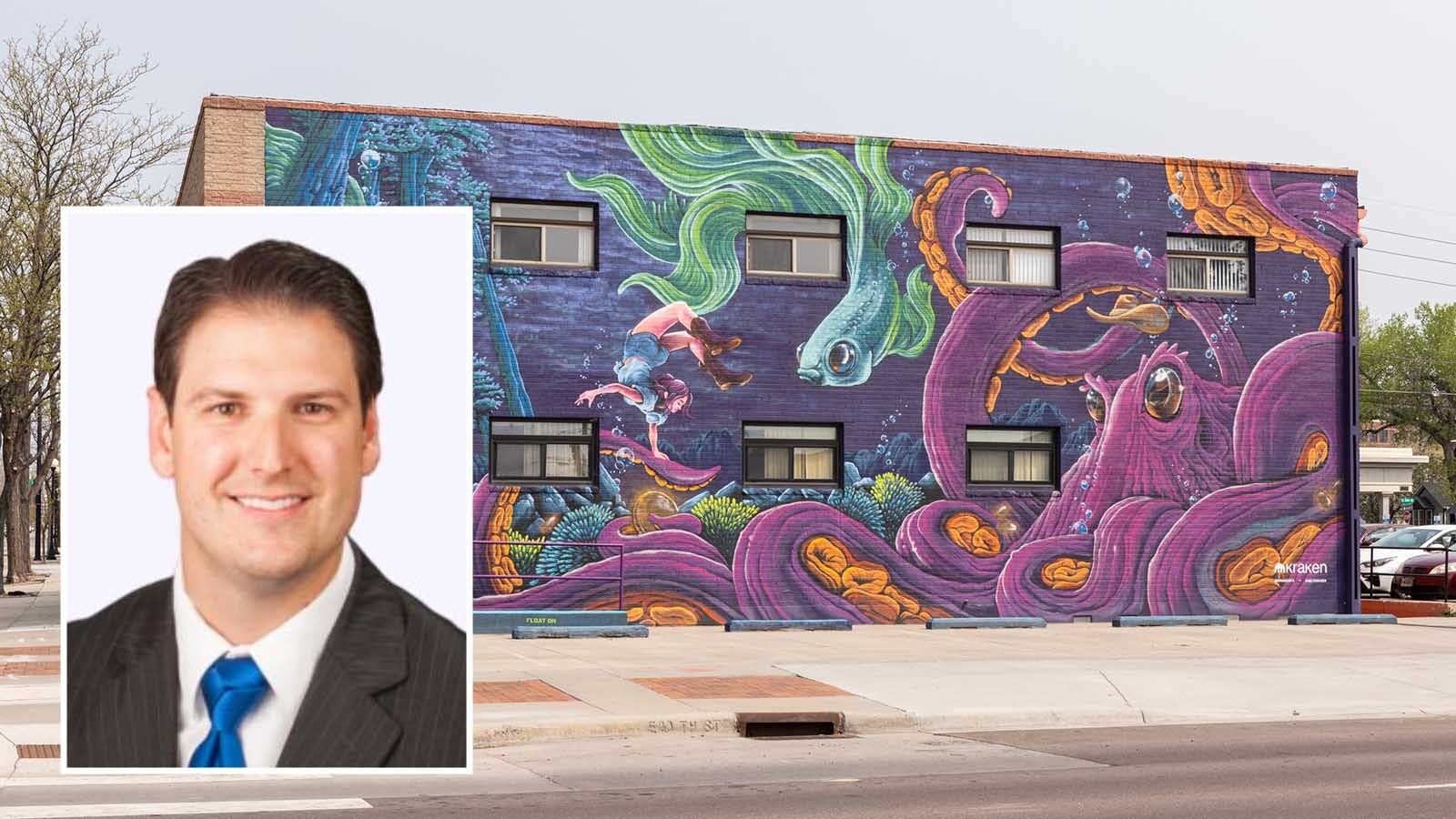Cowboy State Daily’s 'Drinking Wyoming' is presented by Pine Bluffs Distilling.
SHOSHONI — At the Lucky 5 Lounge, the regulars can tell you’re an out-of-towner the second you walk through the door.
They can tell by the way you dress. They can tell by the fact that you smell of cologne. They know it from the timid way you settle onto a stool.
But most of all, they can tell by your drink of choice.
“Did you just ask for wine!?” asked a woman named Jane Loe, turning her head down the bar with a theatrical drop of the jaw.
She looks you up and down and takes it all in — from the loud red socks to the bright yellow bucket hat — then gives a smile of loving condescension, the kind of look typically reserved for hapless children with embarrassing projects at the science fair.
“You’re not from around here, are you?” she said, with a tone to suggest she enjoys being the bearer of bad news. “Nobody orders wine here. You can’t even get a margarita here if you wanted one.”
Already a small crowd is rubbernecking in. Over your shoulder someone says in a scandalous whisper, “He wants wine.”
The bartender, Freda, shrugs and stares with the glassy expression of a China doll.
For a moment it feels as if everyone at the Lucky 5 Lounge is holding their breath: What will the out-of-towner say next?
How about a shot of whiskey and a beer, you say. There’s an audible sigh of relief. Now you’re speaking the same language.
“Coming right up!”
In addition to the slim-pickins menu, Lucky 5 Lounge has all the classic trappings of an aging dive bar.
The air is heavy with cigarette smoke. The vinyl booth seats are torn and split and pieced back together with tiger stripes of duct tape.
A 20-something woman named Brianna taps the screen of a skill game, cursing her losses. A friendly wager hangs on a game of darts. While all through the day and into the evening, the cracking sound of 8 ball break shots seems to mark the passage of time, like church bells.
Although unlike other dives where locals can be territorial or suspicious, the folk at Lucky 5 are instantly warm and trusting.
They share vulnerable personal stories, not to mention their penchants for past times that might not, strictly speaking, be legal.
“I share everything,” said Loe.
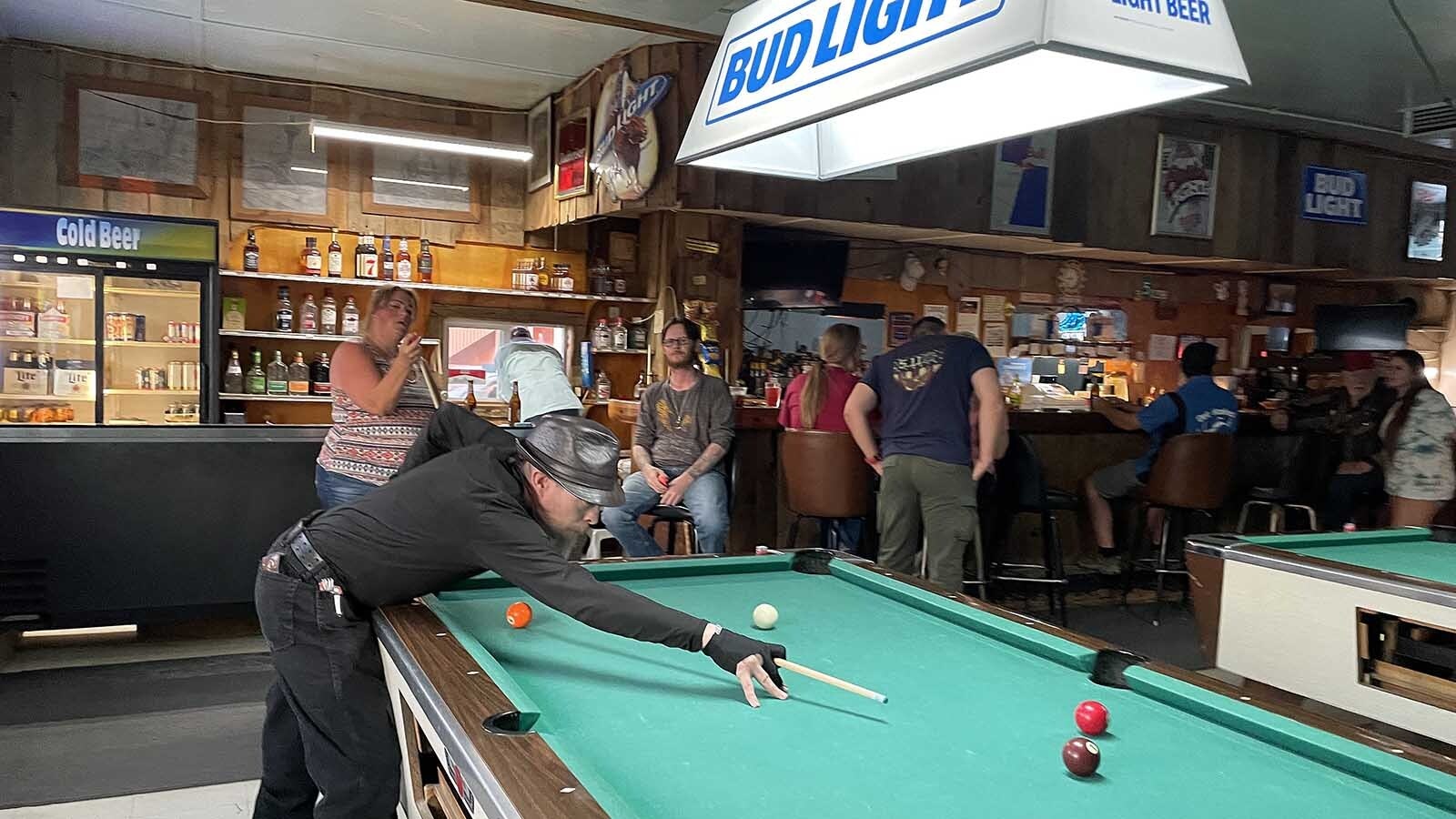
Four-Day-Weekend Energy
Loe, 70, has a beaming smile and warm brown eyes like two chocolate chips. Her youthful, go-lucky attitude stands in contrast to an aged facade. The deep wrinkles in her neck ripple like a pumping concertina when she laughs.
And she laughs a lot, because the regulars, along with the staff, like to have fun.
She’s wearing a striped cotton dress which she proudly declares cost her $1 at the thrift store, explaining she’s a woman who values experience over material possessions.
She’s also a woman who happens to be headed out the door with a freshly cracked can of Busch Light cleverly concealed in a screw-top koozie.
“I drink and drive. Is it legal? I don’t know. Do us locals do it all the time? I do,” she says matter-of-factly.
But first, she pulls Freda from behind the bar to dance as a blues rock number comes on the jukebox. Her energy is infectious. Others join in.
It’s not even yet Wednesday’s happy hour, but it suddenly feels like the start of a four-day weekend.
Lucky 5-Star Hospitality
Steve Mullen is lifetime Fremont County resident, longtime Lucky 5 bartender and a former oil field worker who in a different life could have been a stunt double for Willie Nelson.
He has hollowed cheeks, a braided blond beard and hooded blue eyes that brim with a look of mournfulness, harboring hard memories from the past.
Talk to him long enough and he might share stories about any number of the tragedies he grew up around, like a double murder-suicide involving friends from oil fields.
“You’d have to be here to even fathom it,” he said. “Some crazy stuff.”
The memories, perhaps, make deeper scars for the fact that deep down he’s a peacenik with a big heart for humanity — a heart he brings to the work of hospitality, which invites more comparisons to Outlaw Willie.
Standing at the Jukebox, you feel a nudge at your elbow.
“How's the Shoshoni hospitality so far?” Mullen asks, a hint of conspiracy in his voice.
Couldn’t be better.
“Well, maybe it could be,” he said, passing over a pocket-sized tin of Altoids mints. “There’s more hospitality here if that’s your thing.”
Inside, there may or may not have been curiously strong, minty-flavored nugs of purple-haired marijuana.
OK, the hospitality could be better.
Next up on the jukebox: Willie Nelson’s “Roll Me Up and Smoke Me When I Die.”
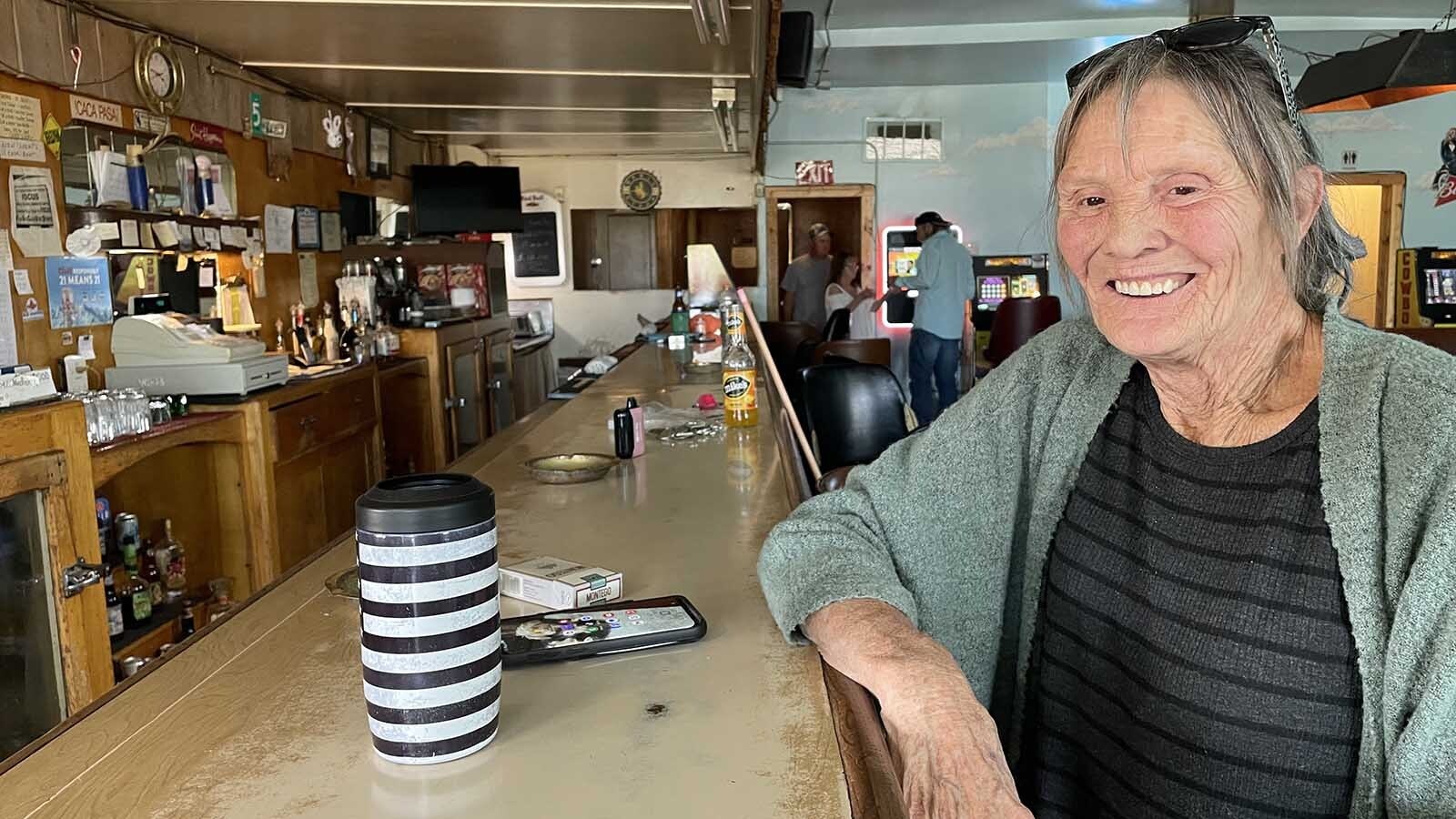
No Such Thing As A Lucky 5 Type
By first impressions, the people funneling through Lucky 5 Lounge have a lot in common. They’re jaunty but hospitable, hardened through experience but unafraid to be vulnerable.
Although the more time you spend here, the more you realize there’s no such thing as a Lucky 5 “type.” But if there’s one word that gets at their essence, it's loyalty.
This is a bunch that has each other's backs — even if that means whacking a guy with a pool cue.
‘When You Hit A Woman, That’s Where I Have A Problem’
Anthony Gatherers, 42, cuts a unique figure among the regulars here.
His skin is anemically pale, and he dresses — always — in black, from his boots to his leather fedora. The only color accent is the gleaming clip of a boxcutter that he keeps in his front pocket.
He has a thin brown ponytail and a rakish goatee. He gives the impression of a guy who doesn't bother to speak unless spoken to. You can find him at Lucky 5 every Wednesday, circling the pool table like a vulture circling its prey.
Without parsing words, he gives off quintessential school shooter vibes, by his own admission.
“Back during all the Columbine stuff, everyone was looking at me differently and my parents and my teachers all told me to stop wearing black,” he said. “But I wouldn’t do it. I’ve always worn it. I always will.”
Though his elders did eventually prevail in their campaign to put a stopper on his obsession with horror stories.
“I used to write a lot of stories about people who go camping and everyone gets killed,” he said. “I finally stopped doing that.”
Gatherers’ own story is not one to be judged by the cover, and the patrons here uniformly vouch that he’s a man of integrity. Among the principles guiding that integrity is his hard and fast stance against hitting women.
It was a weekend evening at the Lucky 5, and a group of out-of-towners started getting drunk and rambunctious. A scuffle started in the bar and migrated out to the street.
Gatherers took on the role of crowd control, using his pool cue to hold people back. But one of the men grabbed the cue and snapped it, then landed a roundhouse at the head of a local patron named Sherri, who fell hard to the ground.
“That’s not OK with me. I was trying to break the fight up, but when you hit a woman, that’s where I have a problem,” he said. “I took both ends of my pool cue in one hand and swung on him. Got him good. It settled down after that.”
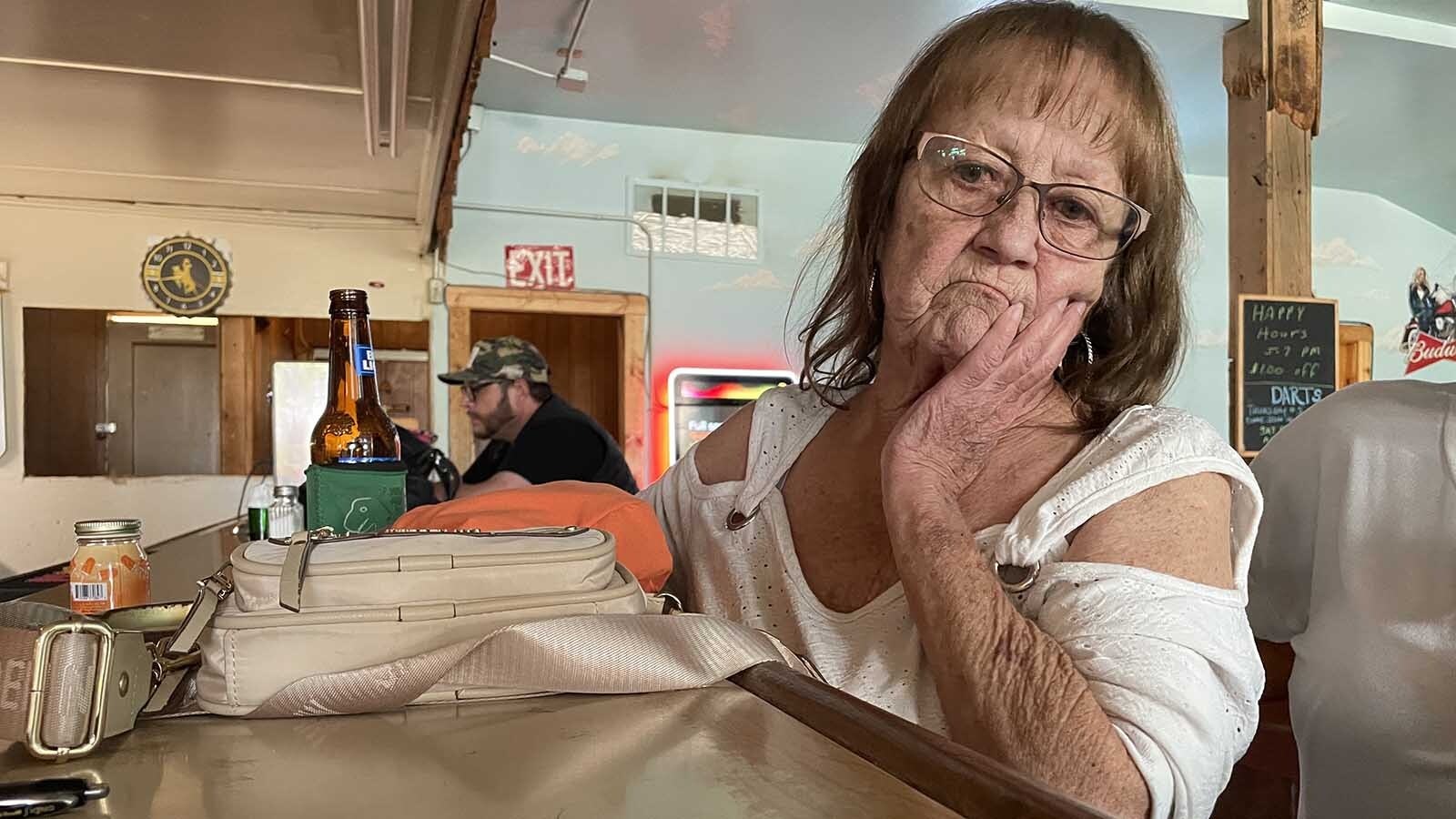
Shoshoni Is Home
Loe experienced this loyalty from a different vantage following a tragedy that made her realize Shoshoni is home.
On a morning one December after an overnight snowstorm, she headed “out of town to go necking” with her boyfriend.
But coming across the Badwater Creek Bridge, they spun out on patch ice and collided with another vehicle in a gruesome crash that left their truck’s cab and bed twisted apart like the layers of a Rubik’s cube.
She remembers first responders pulling her out through the broken front windshield. And she remembers the devastation she felt to later learn her boyfriend had died.
She’d coasted into Shoshoni on a wave of mid-life wanderlust in 1995 with no intention of staying. But through that experience, she decided Shoshoni was where she belonged.
“These precious people, I didn’t even really know any of them at that time, but they all pooled money for me,” she said. “They had a can and everyone put it in there. They paid my house payments and were there for me.
“That’s why I’m still here today, because of the community, friends and all the love here. They embraced me. You can’t find that in the big city. So, I said I’m not going anywhere.”
Who needs wine and margaritas when you’ve got a community like this?
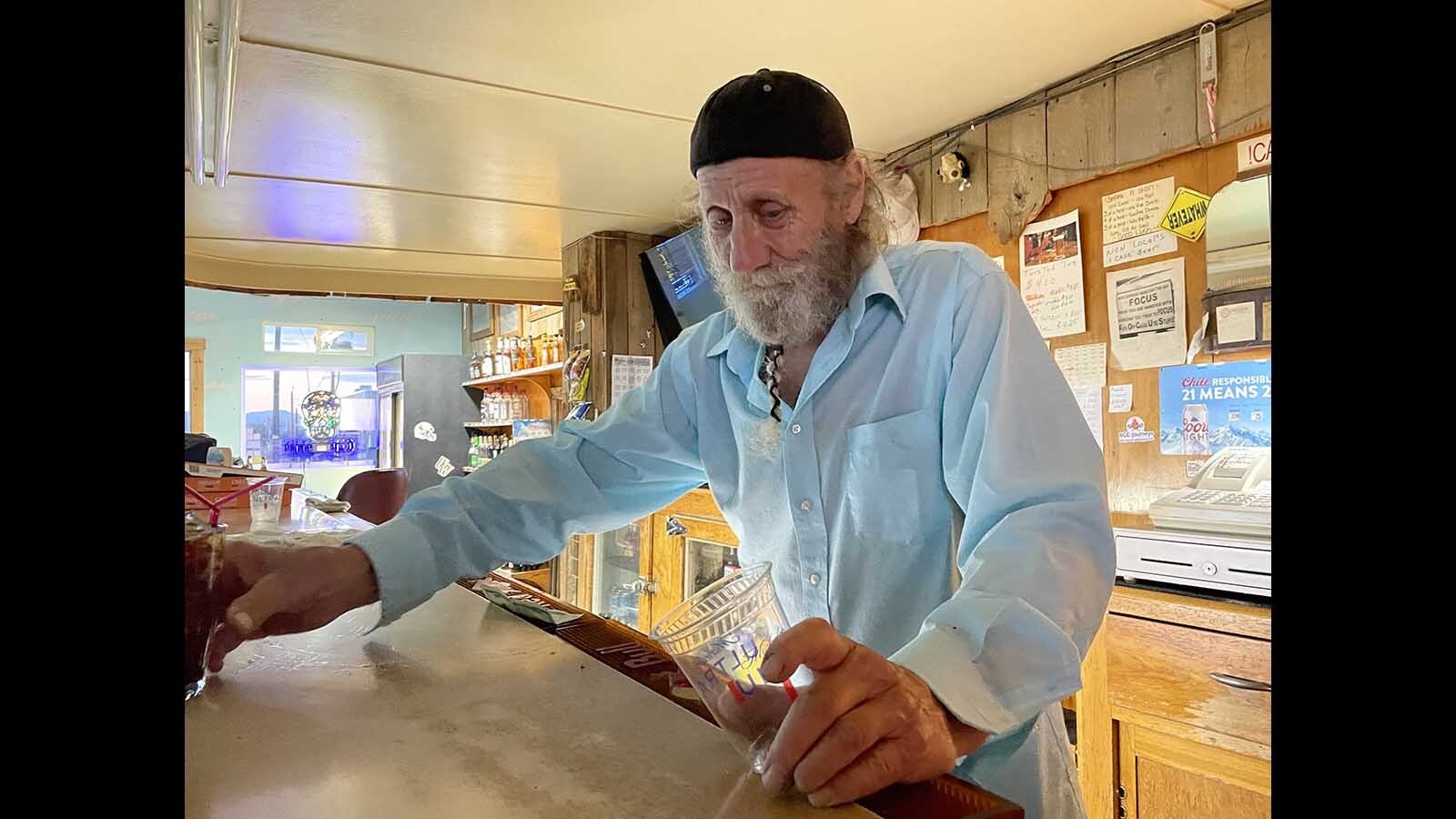
Is Lucky 5 Now Fighting For Its Own Survival?
The Lucky 5 community is the living legacy of a man named Eddie Roberts.
As local lore has it, the bar had come to a man named Bob Berg by way of a high-stakes poker hand in the mid-to-late 20th century. Berg died and left the bar to wife, who later sold it to her son, Eddie Roberts, whose legacy is the Lucky 5 community of today.
Roberts poured himself into the business and created a culture that people wanted to be a part of.
“He cared about this place. He invested in it, and we cared about it because he cared about it. And we cared about him because he cared about us,” said Freda, who knew Roberts for 50 years and reflects fondly on their first kiss behind a dumpster at Shoshoni High School.
She recalls one night after her shift when Eddie laid a few thousand cash on the bar top and told her to use it to get out of an onerous car loan. He gave her zero interest repayment for as long as it took.
In the early 2010s, he was diagnosed with organ cancer. After a series of unsuccessful chemo treatments, he resigned himself to the inevitable. His only wish was to die in the place he loved most.
“He wanted to spend his last days here. It was the place that meant the most to him. And I was the last one to see him alive, right there,” said Freda, nodding across the room.
He slept on a leaky air mattress beside the pool table. Each night, Freda tucked him in and locked up behind her. The morning bartender got him back on his feet the next day.
“He drank himself to death,” she said. “And I’ll never forgive myself because his last night was a cold winter night, and I didn’t cover him up.”
The bar has since fallen to Eddie’s brother, Sterling, who Freda and others describe as an unconcerned owner who'd be eager to get it off his hands. There’s a “for sale” sign in the window.
“He doesn’t care about the way Eddie did, and I’m not sure what’s going to happen to us. But I’m going to fight for this place because it’s a part of me,” said Freda, whose own mother tended bar at the Lucky 5 once upon a time.
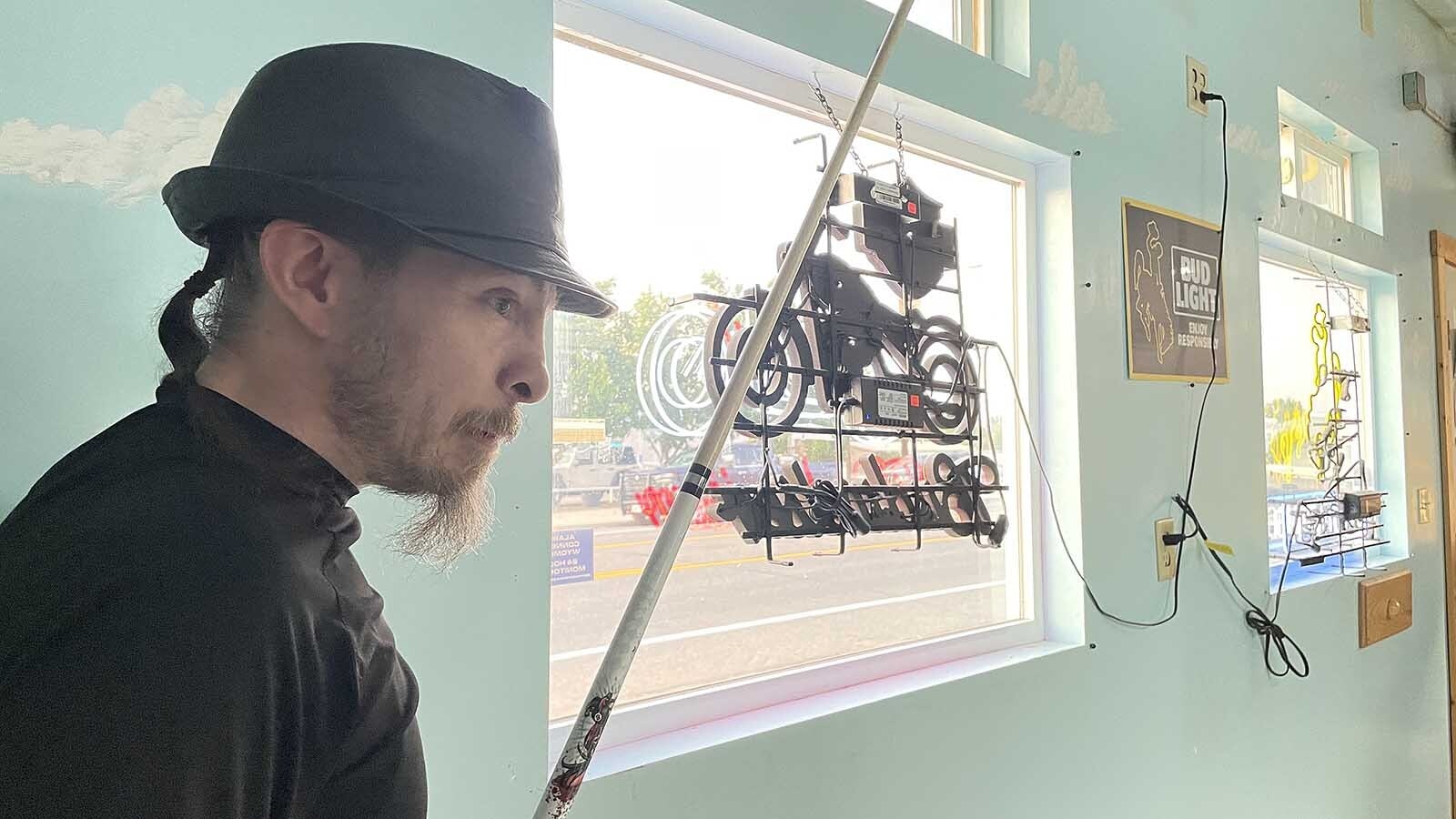
Wine, At Last
In the meantime, the staff at Lucky 5 are still fighting to give their customers the best experience possible.
“You said you wanted wine, right?” said Mullen, beaming with triumph as he smacks down two strange bottles of booze on the bar.
What’s this?
“American White Port. I found it buried in the back,” he said. “This is the stuff that all those winos back in the day would drink.”
No one knows good wine quite like a wino. Let her rip, you say.
In the Lucky 5’s closest approximation of a wine glass, Mullen laid out a round of shot-size pours on the house. Everyone at the bar touched glasses and had a drink.
The hospitality just keeps getting better, you say to myself. Although in the end, maybe you’re really a whisky and beer guy after all.
Contact Zakary Sonntag at zakary@cowboystatedaily.com
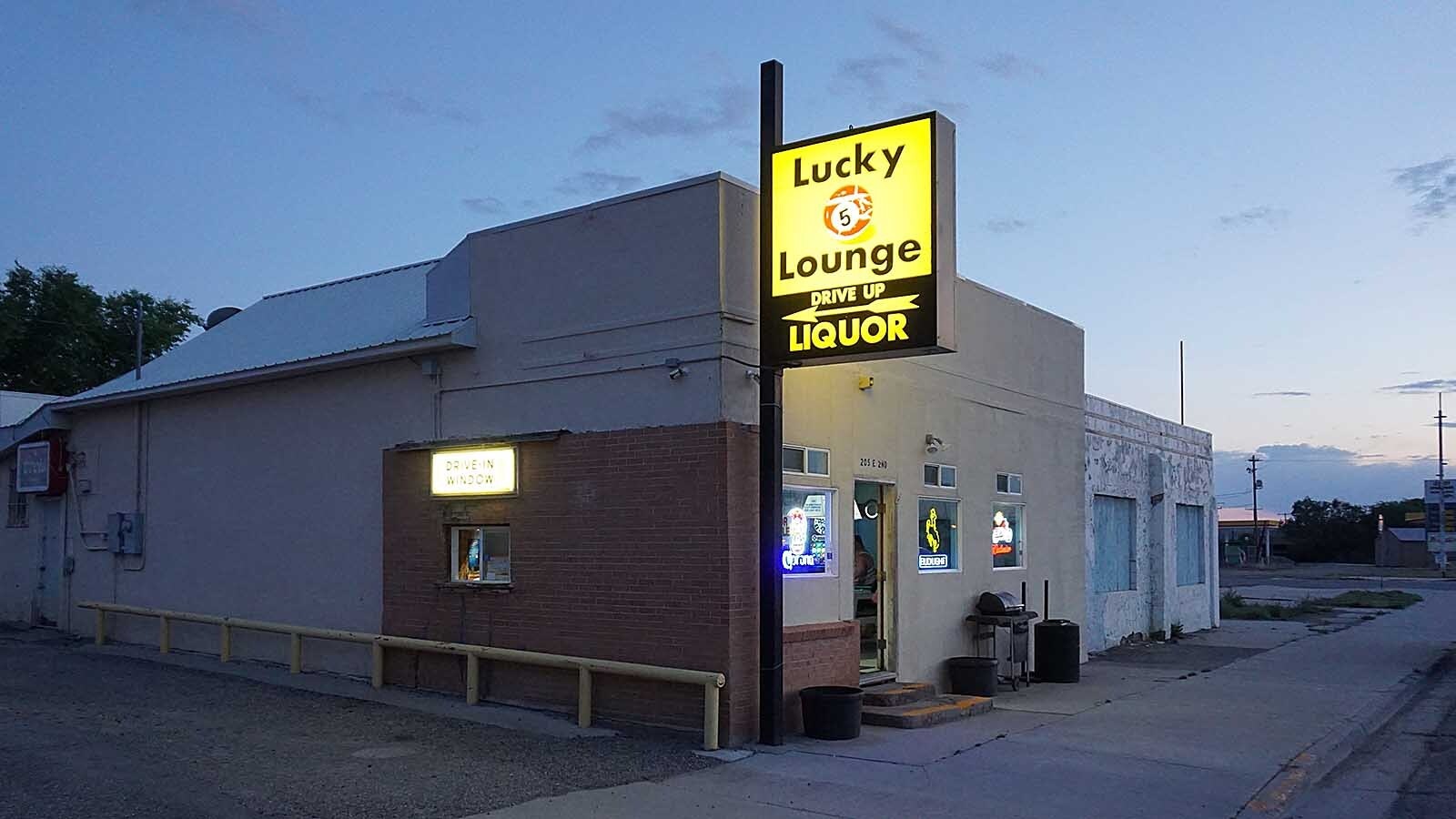
Zakary Sonntag can be reached at zakary@cowboystatedaily.com.


